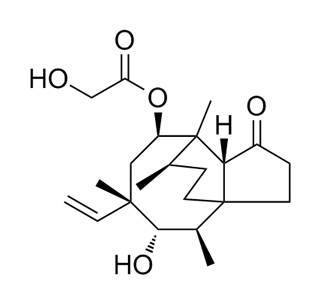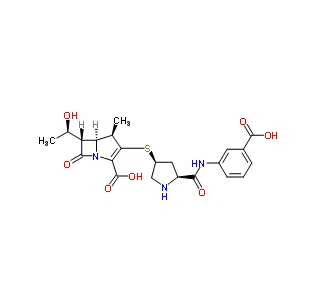
Search

Search

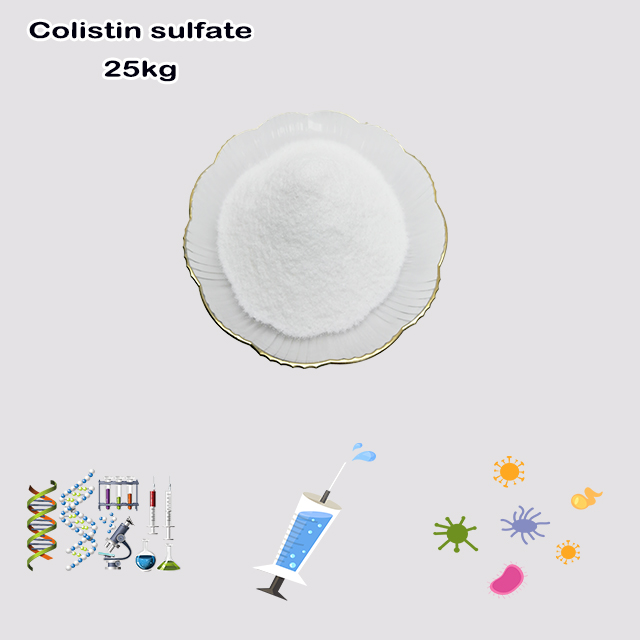
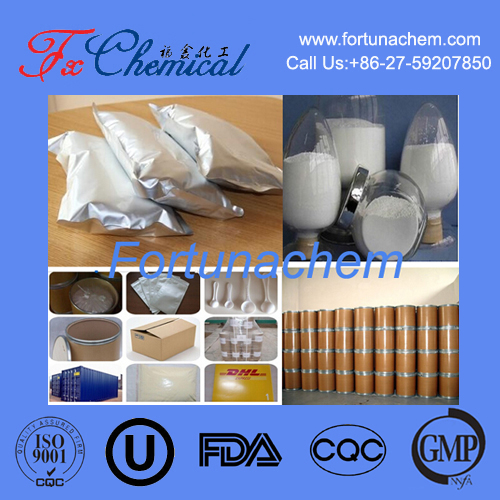
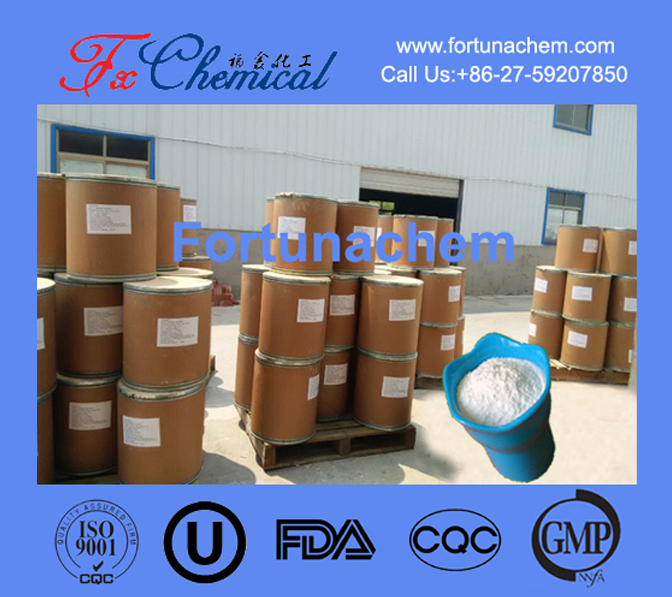
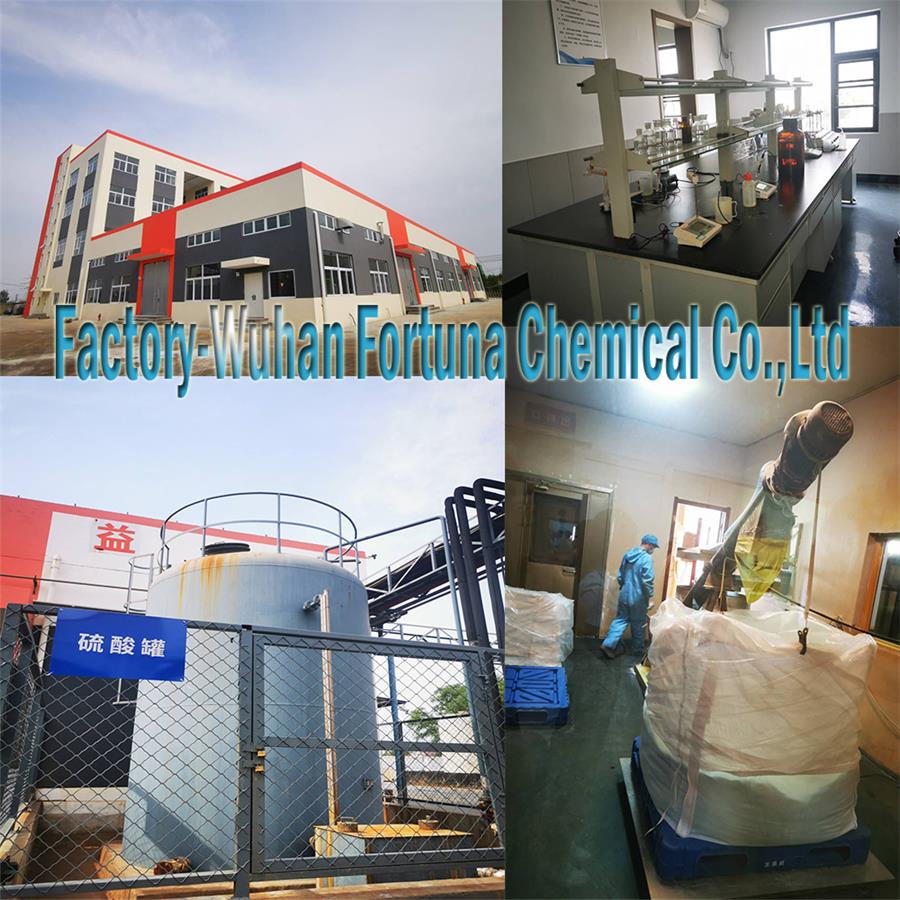
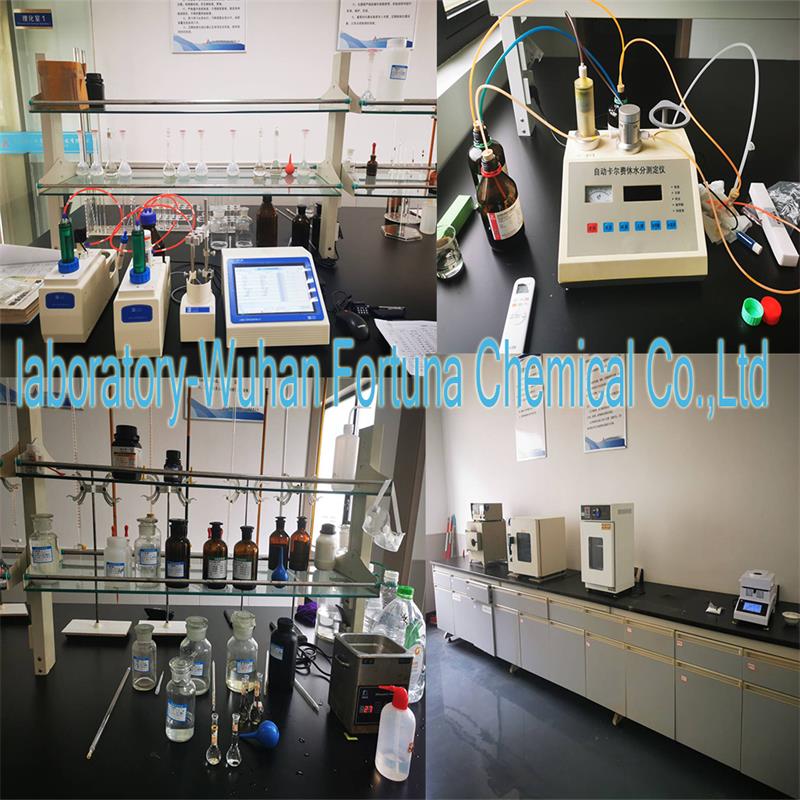





Colistin sulfate is mainly used for sensitive bacterial infections, such as sepsis, acute enteritis, urinary tract infections, etc.
Colistin sulfate has a strong antibacterial effect on Escherichia coli, Salmonella, Pasteurella, dysentery bacillus, Brucella, Vibrio, Pseudomonas aeruginosa and other gram-negative bacteria, of which the bactericidal effect on Pseudomonas aeruginosa and Vibrio is strong, the bactericidal mechanism of colistin sulfate is to damage the bacterial cell membrane, increase its permeability, so that the leakage of amino acids, purines, pyrimidine, K+ and so on in the bacteria can also affect the function of nucleoplasm and ribosomes, resulting in bacterial death.
| Item | Specifications | Results |
| Appearance | White or almost, hygroscopic powder | Conforms |
| Sulphate ash | ≤1.0% | 0.39% |
| Loss on drying | ≤3.5% | 2.3% |
| Assay(Dried substance) | ≥19000 IU/mg | 23132 IU/mg |
| Product parameters | |
| Cas number: | 1264-72-8 |
| Appearance: | White or almost, hygroscopic powder |
| Purity: | 19000 IU/mg min |
| Package details: | 450Bou/Box |
| Brand: | Fortunachem |
Colistin sulfate is the salt form of colistin, an old antibiotic that belongs to the polymyxin class. It is a last-resort treatment for severe, multidrug-resistant Gram-negative bacterial infections.
A critical distinction must be made right away: Colistin sulfate is primarily used for intestinal decontamination (oral or topical use), whereas its sibling compound, colistimethate sodium, is used for systemic infections (injection into the bloodstream or muscles).
Chemical Class: It is a cationic polypeptide antibiotic. Its molecule is a decapeptide (10 amino acids) with a fatty acid tail.
Charge: It is positively charged (polycationic).
Form: Colistin sulfate is the stable, acidic salt form of colistin.
Colistin sulfate has a unique and potent mechanism that disrupts the very integrity of the bacterial cell:
Targets the Outer Membrane: It primarily targets the outer membrane of Gram-negative bacteria (e.g., E. coli, Klebsiella, Pseudomonas aeruginosa, Acinetobacter baumannii).
Displaces Magnesium and Calcium: The positively charged colistin molecules displace the divalent cations (Mg²⁺ and Ca²⁺) that stabilize the negatively charged lipopolysaccharide (LPS) molecules in the outer membrane.
Disrupts Membrane Integrity: This disruption causes the outer membrane to become permeable and leaky.
Causes Cell Lysis: The bacterium loses control over its internal contents, essential molecules leak out, and it ultimately dies (a bactericidal effect).
In simple terms, it punches holes in the bacterium's protective outer shell, causing it to fall apart.
Because colistin sulfate is not well absorbed from the gut, its use is targeted:
Oral Administration (for Gut Decontamination):
Treatment of Enteric Infections: Used to treat gastrointestinal infections caused by susceptible Gram-negative bacteria.
Selective Digestive Decontamination (SDD): In critically ill patients in intensive care units, it is used orally to eliminate potentially harmful Gram-negative bacteria from the gut, reducing the risk of systemic infections like ventilator-associated pneumonia.
Topical Application:
Used in powders, ointments, or solutions to treat bacterial skin, ear, and eye infections caused by susceptible organisms.
Veterinary Medicine:
Colistin sulfate has been widely used in agriculture for the treatment and prevention of enteric infections in livestock (pigs, poultry, cattle). This use is highly controversial as it contributes to the development and spread of antibiotic resistance.
This is the most important practical point to understand.
| Feature | Colistin Sulfate | Colistimethate Sodium |
|---|---|---|
| Also Known As | ... | Colistin methanesulfonate, CMS |
| Chemical Form | Active form of the antibiotic | A prodrug (inactive form) |
| Absorption | Not absorbed from the gut or skin. | Can be given by injection (IV/IM) for systemic effect. |
| Primary Use | Local/Topical: Gut decontamination, skin/ear infections. | Systemic: Serious bloodstream, lung, or urinary tract infections. |
| Activation | Already active. | It must be converted in the body to active colistin. |
In summary: You would take colistin sulfate by mouth to treat a gut infection, but a doctor would administer colistimethate sodium intravenously to treat sepsis or pneumonia.
Nephrotoxicity (Kidney Damage): This is the most significant and well-known side effect of colistin, particularly with the systemic (IV) form. Kidney function must be closely monitored during treatment.
Neurotoxicity (Nerve Damage): Can cause dizziness, confusion, tingling sensations (paresthesia), and even respiratory paralysis at high doses.
Antibiotic Resistance: Colistin is a drug of last resort. The emergence and spread of the mcr-1 gene and other resistance mechanisms, which make bacteria resistant to colistin, is a major global public health threat. Its use in agriculture has significantly contributed to this problem.
Dosing: Dosing is complex and is often calculated based on ideal body weight and kidney function.
Colistin sulfate is a last-resort polypeptide antibiotic used to combat dangerous Gram-negative bacteria. Its primary role is for local treatment of the gastrointestinal tract or skin, where it is not absorbed into the bloodstream. Its power is tempered by significant toxicity (especially to the kidneys) and the grave threat of increasing bacterial resistance, making its use a carefully considered decision in human medicine.
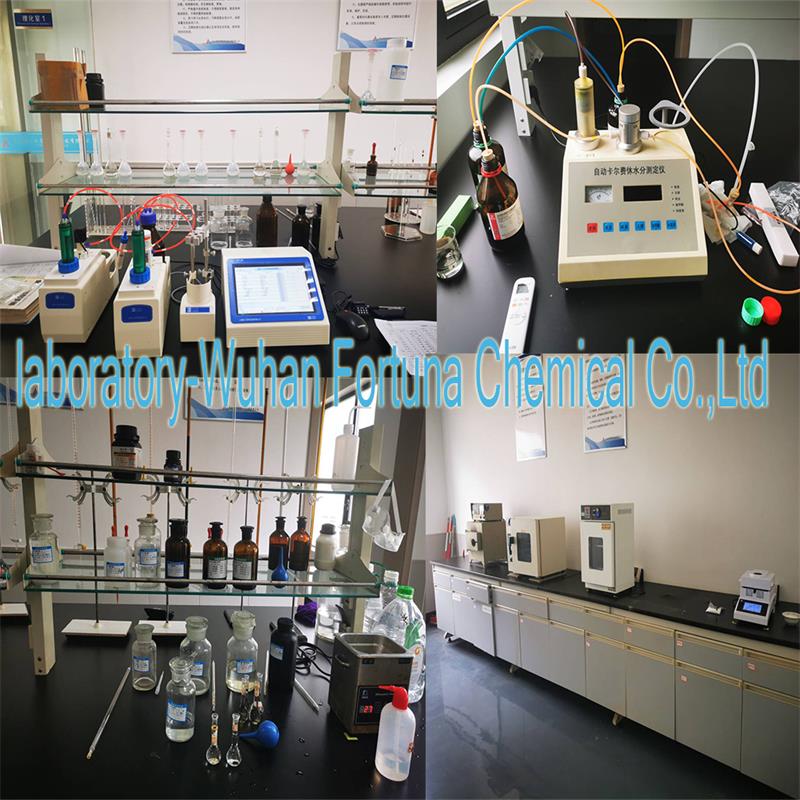
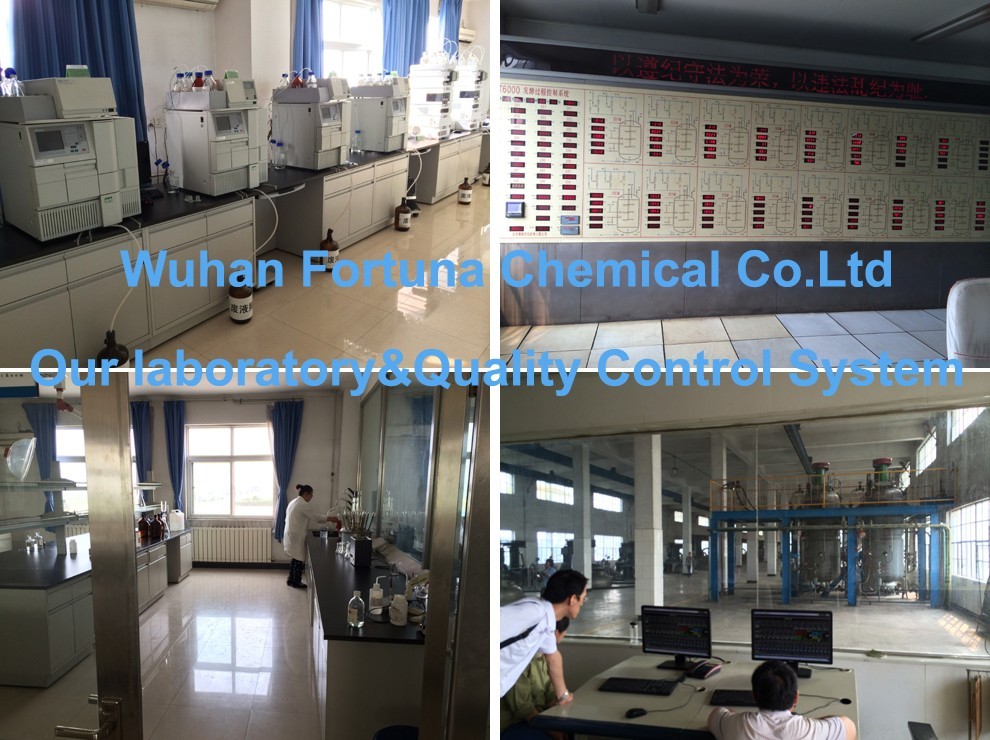
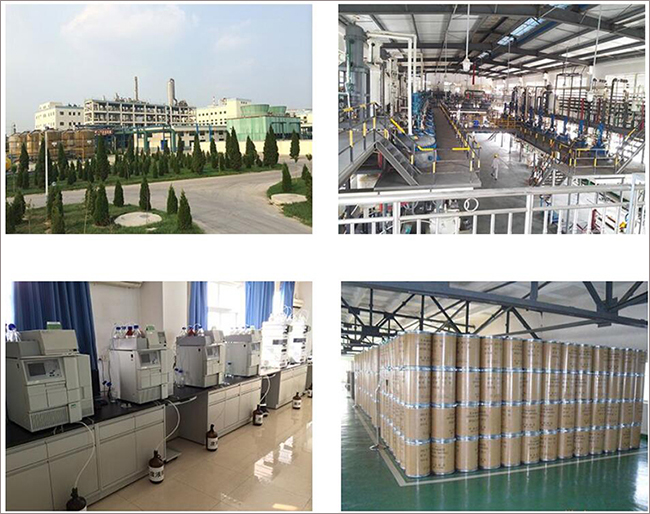
Guaranteed the purity
High quality & competitive price
Quality control
Fast feedback
Prompt shipment

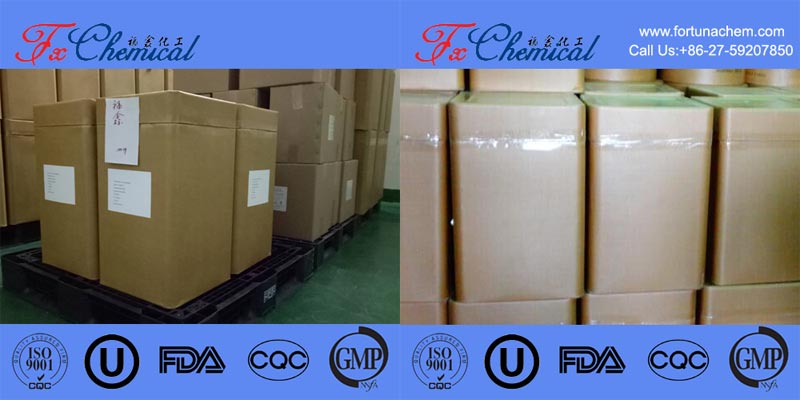

Fortunachem Provides Not Only Professional Chemical Products But Also Professional Help
Keeping you up-to-date with all the latest information, news, and events about Fortunachem!

Quick Links
Add:
E-mail:
 English
English  Español
Español  français
français  العربية
العربية 

